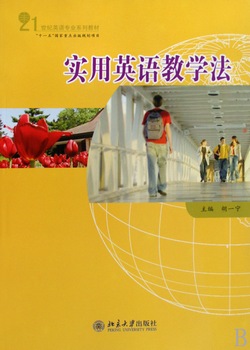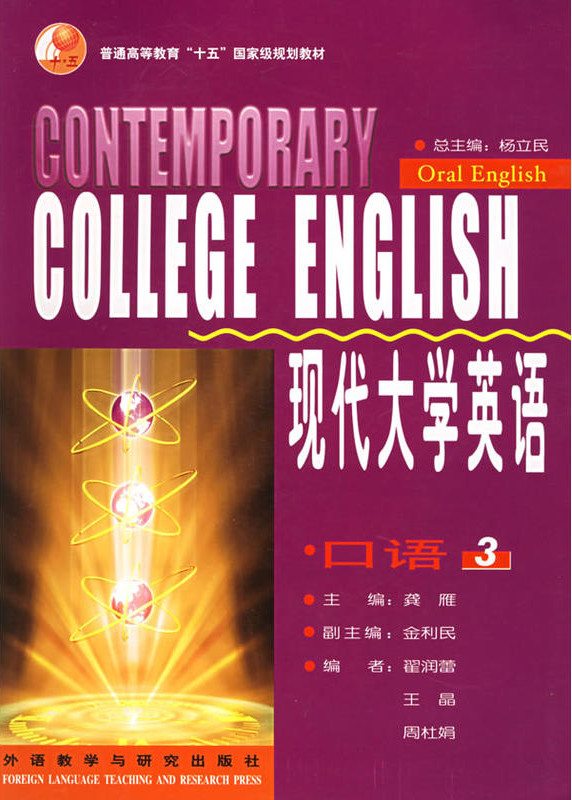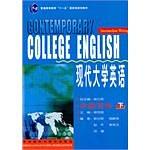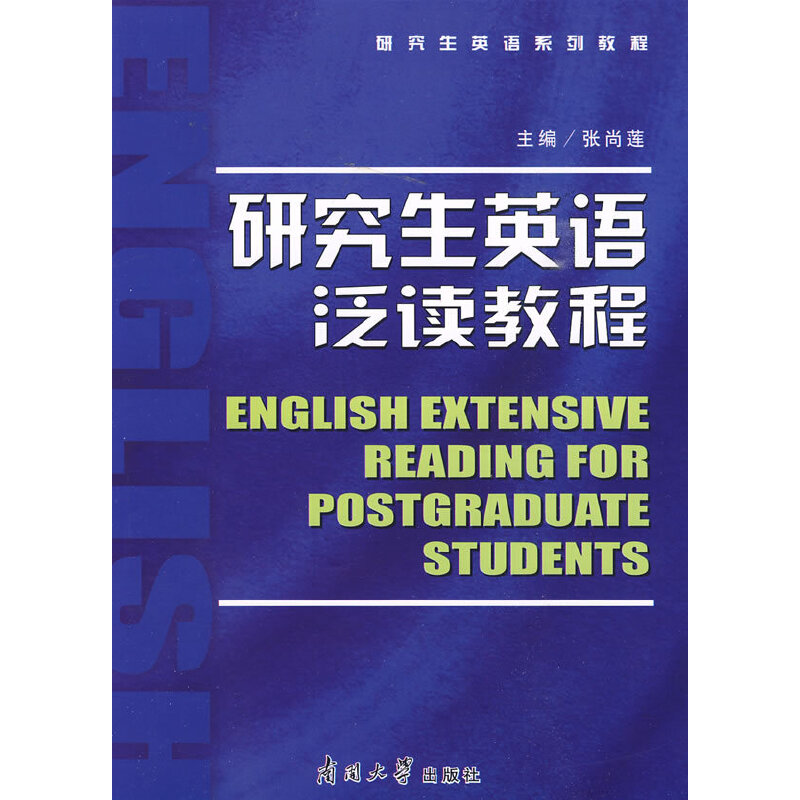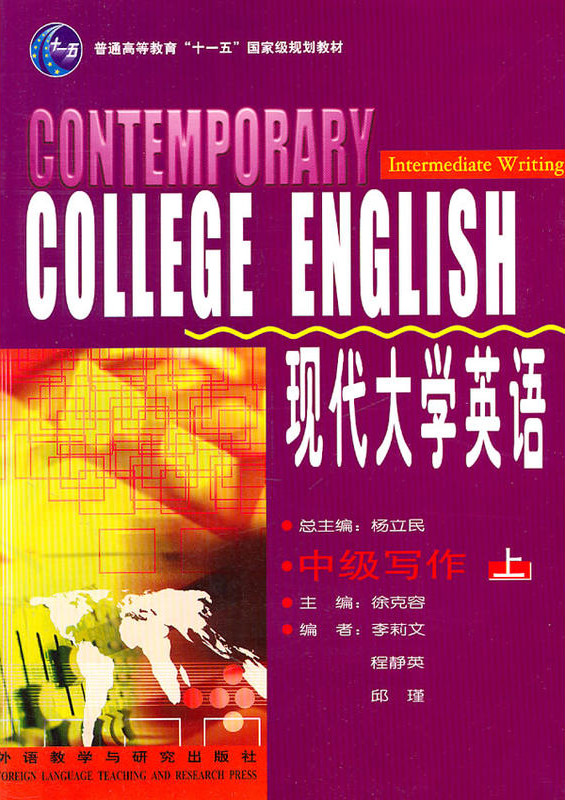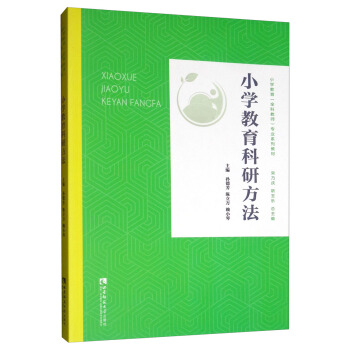实用英语教学法 / 21世纪英语专业系列教材
定价:¥34.00
作者: 胡一宁
出版时间:2012-11
出版社:北京大学出版社
- 北京大学出版社
- 9787301144978
- 1版
- 91801
- 43150308-5
- 平装
- 16开
- 2012-11
- 370
- 268
- H319.3
- 英语
- 本科
内容简介
经过三年多的计划、思考、准备和编写,《实用英语教学法》终于问世了。《实用英语教学法》是为英语专业师范生编写的英语教学法教材,也可用于中学英语教师的继续教育和在职进修、培训。
《实用英语教学法》具有以下三个特点。
1.紧扣新课标。着眼新课改。紧紧围绕着《英语课程标准》的五大培养目标(英语知识、英语技能、情感态度、学习策略和文化意识),全书内容分成七个部分:英语语言;英语教师;英语教学;四项技能;影响语言学习的情感因素;语言学习策略;语言教学中的文化意识。这种编排方法在目前国内英语教学法教材中还不多见。
2.选文有出处,内容具权威。全书所选的86篇文章几乎全部出自大家之手,其中不乏语言教学研究和教师教育领域的*人物和知名专家、教授,如:we,David Crook;George Herbert Palmer;Jeremy Harmer;F.G French;Harold lmer;exander;Michael West。不仅反映了国内外英语教学研究的*成果,还为读者提供了原汁原味、文笔优美的英语文章。经过三年多的计划、思考、准备和编写,《实用英语教学法》终于问世了。《实用英语教学法》是为英语专业师范生编写的英语教学法教材,也可用于中学英语教师的继续教育和在职进修、培训。
《实用英语教学法》具有以下三个特点。
1.紧扣新课标。着眼新课改。紧紧围绕着《英语课程标准》的五大培养目标(英语知识、英语技能、情感态度、学习策略和文化意识),全书内容分成七个部分:英语语言;英语教师;英语教学;四项技能;影响语言学习的情感因素;语言学习策略;语言教学中的文化意识。这种编排方法在目前国内英语教学法教材中还不多见。
2.选文有出处,内容具权威。全书所选的86篇文章几乎全部出自大家之手,其中不乏语言教学研究和教师教育领域的*人物和知名专家、教授,如:we,David Crook;George Herbert Palmer;Jeremy Harmer;F.G French;Harold lmer;exander;Michael West。不仅反映了国内外英语教学研究的*成果,还为读者提供了原汁原味、文笔优美的英语文章。
3.体例有特色。易学又实用。传统的、国内现有的英语教学法书籍和教材大致分为两类,一是原版影印加导读、全部由外国人编写的专著和教材;二是中国人自己编的或全英语或全中文的教学法专著和教材。《实用英语教学法》的特色在于,它的每一篇文章都由五个部分组成:摘要、正文、注释、思考题和名人名句,其中摘要和注释两个部分用的是汉语,这就为不同英语程度的读者读懂、读透每篇正文提供了帮助。对英语师范生来说,《实用英语教学法》是一本在英语教学理论和方法方面均有指导意义的教材;对于在职的大学、中学英语教师而言,《实用英语教学法》也不失为一本方便实用、随时可查的教学指导手册。显示全部信息
《实用英语教学法》具有以下三个特点。
1.紧扣新课标。着眼新课改。紧紧围绕着《英语课程标准》的五大培养目标(英语知识、英语技能、情感态度、学习策略和文化意识),全书内容分成七个部分:英语语言;英语教师;英语教学;四项技能;影响语言学习的情感因素;语言学习策略;语言教学中的文化意识。这种编排方法在目前国内英语教学法教材中还不多见。
2.选文有出处,内容具权威。全书所选的86篇文章几乎全部出自大家之手,其中不乏语言教学研究和教师教育领域的*人物和知名专家、教授,如:we,David Crook;George Herbert Palmer;Jeremy Harmer;F.G French;Harold lmer;exander;Michael West。不仅反映了国内外英语教学研究的*成果,还为读者提供了原汁原味、文笔优美的英语文章。经过三年多的计划、思考、准备和编写,《实用英语教学法》终于问世了。《实用英语教学法》是为英语专业师范生编写的英语教学法教材,也可用于中学英语教师的继续教育和在职进修、培训。
《实用英语教学法》具有以下三个特点。
1.紧扣新课标。着眼新课改。紧紧围绕着《英语课程标准》的五大培养目标(英语知识、英语技能、情感态度、学习策略和文化意识),全书内容分成七个部分:英语语言;英语教师;英语教学;四项技能;影响语言学习的情感因素;语言学习策略;语言教学中的文化意识。这种编排方法在目前国内英语教学法教材中还不多见。
2.选文有出处,内容具权威。全书所选的86篇文章几乎全部出自大家之手,其中不乏语言教学研究和教师教育领域的*人物和知名专家、教授,如:we,David Crook;George Herbert Palmer;Jeremy Harmer;F.G French;Harold lmer;exander;Michael West。不仅反映了国内外英语教学研究的*成果,还为读者提供了原汁原味、文笔优美的英语文章。
3.体例有特色。易学又实用。传统的、国内现有的英语教学法书籍和教材大致分为两类,一是原版影印加导读、全部由外国人编写的专著和教材;二是中国人自己编的或全英语或全中文的教学法专著和教材。《实用英语教学法》的特色在于,它的每一篇文章都由五个部分组成:摘要、正文、注释、思考题和名人名句,其中摘要和注释两个部分用的是汉语,这就为不同英语程度的读者读懂、读透每篇正文提供了帮助。对英语师范生来说,《实用英语教学法》是一本在英语教学理论和方法方面均有指导意义的教材;对于在职的大学、中学英语教师而言,《实用英语教学法》也不失为一本方便实用、随时可查的教学指导手册。显示全部信息
目录
Ⅰ.THE LANGUAGE OF ENGLISH
e Nature of Language
e Purpose of Language
at Is Language For?
glish, the Most Widely Used Language
e System of English
nes of English
glish Study
Ⅱ.THE TEACHER OF ENGLISH
at Makes a Good Teacher ?
e Teacher
e Function of the Teacher
Excellent Teacher
an English Teacher
Ⅲ.THE TEACHING OF ENGLISH
e Four Clear Aims
glish Teaching Aims
als of Language Teaching
o Problems
5.A Good Beginning
me Guidelines
w to Teach Well
me Techniques in Teaching English
sconceptions in Foreign Language Teaching
arning a Foreign Language in a Classroom
ds to Reduce the Teacher' s Talking
at Should the Pupils Feel about the Lesson?
ll-Mastered Lessons
e Assignment of the Lesson
anning and Teaching a Lesson
n Chinese Be Used in the Teaching in the Junior Forms?
e Your Hands, Arms, Face, and Clothing in Teaching
eliminary Factors of Linguistic Pedagogy
neral Principles of Teaching English
e Use of Visual Aids
Ⅳ.THE FOUR SKILLS
nguage Learning Is a Skill
ur Essential Skills in English Language Learning
e Order of Presentation of the Language Abilities
udent' s Skills Count for More
owledge versus Skill
arning by Listening
stening and Comprehension
tensive Listening
lective Listening
eaking English
arning to Speak
oken English
lp the Students Speak
w to Teach Oral English
posing Views on the Development of Speaking Skill
e Teaching of Speech and Writing
ading English
e Teaching of Reading
o Methods of Reading
ading, Intensive and Extensive
e Teaching of English Reading
Defense of Writing
arning to Write
iting English
at Is a Good Composition?
CTORS AFFECTING LANGUAGE LEARNING
fective Factors
titudes and Motivation
tivation for Learning English
rsonality Factors
xiety and the Language Learner
rrelates of Language Anxiety
ys to Identify Language Anxiety
assroom Implications of Language Anxiety
e Affective Considerations Relevant to Assessment?
RATEGIES FOR LANGUAGE LEARNING
ew of Language Learning
arner Strategies
pes of Learner Strategies
search into Learner Strategies
arning Strategies
arning Style and Learning Strategies
ills and Strategies
arning to Learn
me Strategies for Facilitating Cooperative Learning for Language Learning
nguage Learning Strategies
rategy Training
e Strategic Teaching Model
arner Training in Foreign Language Teaching
cedures for Strategy Training in Foreign and Second Language Teaching
LTURE AWARENESS IN LANGUAGE TEACHING
portance of Culture Teaching
als of Culture Teaching
ntent of Culture Teaching
fferent Approaches to Culture Teaching
scourse and Culture
aching Language along the Cultural Fault Line
e Nature of Language
e Purpose of Language
at Is Language For?
glish, the Most Widely Used Language
e System of English
nes of English
glish Study
Ⅱ.THE TEACHER OF ENGLISH
at Makes a Good Teacher ?
e Teacher
e Function of the Teacher
Excellent Teacher
an English Teacher
Ⅲ.THE TEACHING OF ENGLISH
e Four Clear Aims
glish Teaching Aims
als of Language Teaching
o Problems
5.A Good Beginning
me Guidelines
w to Teach Well
me Techniques in Teaching English
sconceptions in Foreign Language Teaching
arning a Foreign Language in a Classroom
ds to Reduce the Teacher' s Talking
at Should the Pupils Feel about the Lesson?
ll-Mastered Lessons
e Assignment of the Lesson
anning and Teaching a Lesson
n Chinese Be Used in the Teaching in the Junior Forms?
e Your Hands, Arms, Face, and Clothing in Teaching
eliminary Factors of Linguistic Pedagogy
neral Principles of Teaching English
e Use of Visual Aids
Ⅳ.THE FOUR SKILLS
nguage Learning Is a Skill
ur Essential Skills in English Language Learning
e Order of Presentation of the Language Abilities
udent' s Skills Count for More
owledge versus Skill
arning by Listening
stening and Comprehension
tensive Listening
lective Listening
eaking English
arning to Speak
oken English
lp the Students Speak
w to Teach Oral English
posing Views on the Development of Speaking Skill
e Teaching of Speech and Writing
ading English
e Teaching of Reading
o Methods of Reading
ading, Intensive and Extensive
e Teaching of English Reading
Defense of Writing
arning to Write
iting English
at Is a Good Composition?
CTORS AFFECTING LANGUAGE LEARNING
fective Factors
titudes and Motivation
tivation for Learning English
rsonality Factors
xiety and the Language Learner
rrelates of Language Anxiety
ys to Identify Language Anxiety
assroom Implications of Language Anxiety
e Affective Considerations Relevant to Assessment?
RATEGIES FOR LANGUAGE LEARNING
ew of Language Learning
arner Strategies
pes of Learner Strategies
search into Learner Strategies
arning Strategies
arning Style and Learning Strategies
ills and Strategies
arning to Learn
me Strategies for Facilitating Cooperative Learning for Language Learning
nguage Learning Strategies
rategy Training
e Strategic Teaching Model
arner Training in Foreign Language Teaching
cedures for Strategy Training in Foreign and Second Language Teaching
LTURE AWARENESS IN LANGUAGE TEACHING
portance of Culture Teaching
als of Culture Teaching
ntent of Culture Teaching
fferent Approaches to Culture Teaching
scourse and Culture
aching Language along the Cultural Fault Line

